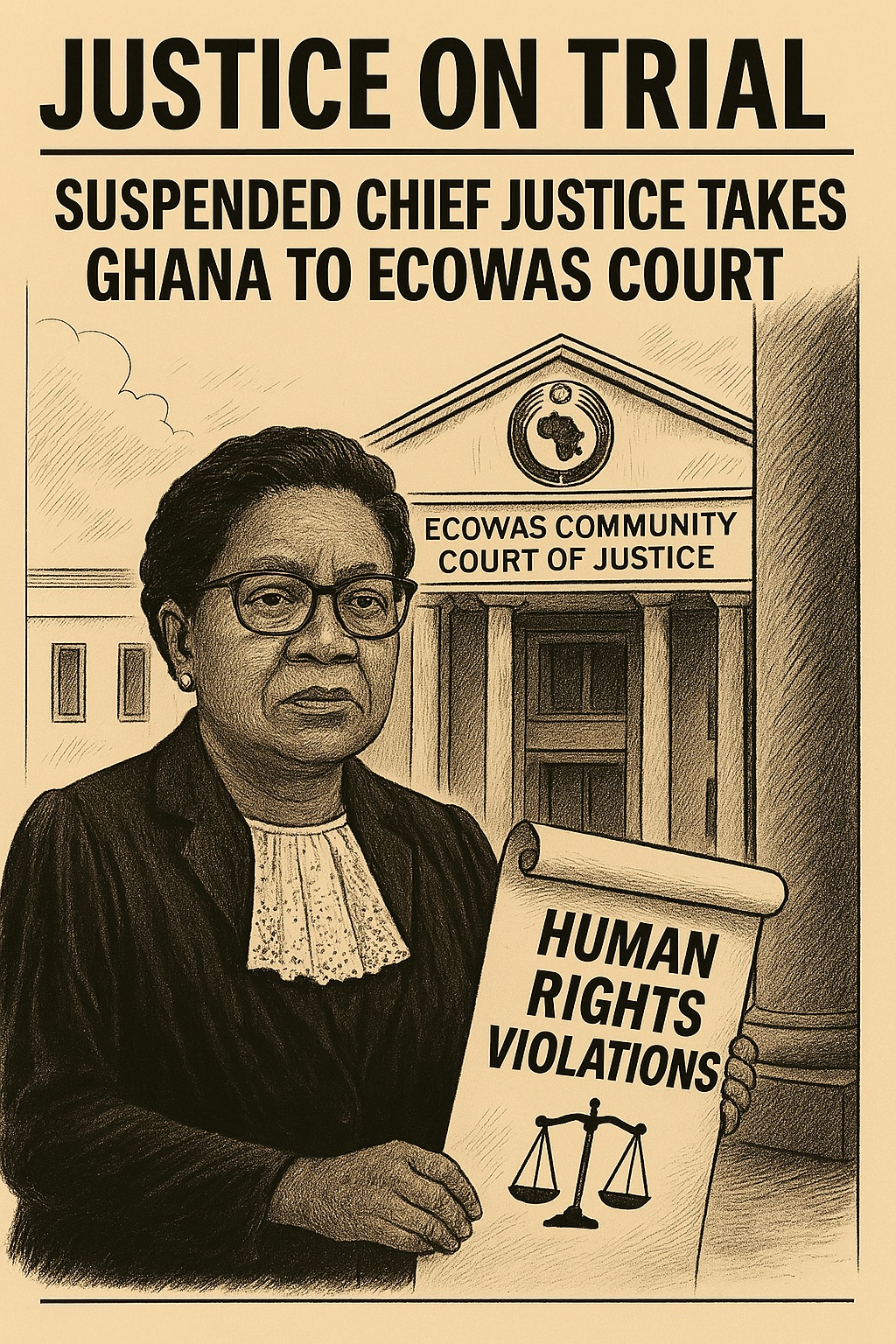Justice on Trial: Suspended Chief Justice Torkornoo Takes Ghana to ECOWAS Court

In a high-stakes escalation of Ghana’s judicial crisis, Suspended Chief Justice Gertrude Esaaba Torkornoo has filed a lawsuit against the Republic of Ghana at the ECOWAS Community Court of Justice in Abuja, Nigeria. The suit, lodged on July 4, 2025, alleges grave violations of her human rights in the process leading to her suspension and potential removal from office24.
Background: A Contested Suspension
Justice Torkornoo was suspended on April 22, 2025, following the establishment of a prima facie case based on three separate petitions accusing her of misconduct. The suspension was enacted under Article 146(6) of Ghana’s 1992 Constitution, after consultation with the Council of State. President John Mahama subsequently appointed a five-member investigative committee, chaired by Supreme Court Justice Gabriel Scott Pwamang, to probe the allegations.
The accusations against her include:
-
Abuse of office
-
Administrative interference
-
Questionable procurement decisions related to judiciary modernization projects6
Justice Torkornoo has consistently denied wrongdoing, arguing that the petitions lack legal merit and that the process violates her constitutional rights.
Allegations of Human Rights Violations
In her ECOWAS Court filing, Justice Torkornoo claims that her suspension amounts to a de facto removal from office without due process. She argues that this action has impaired her constitutional right to function in a role she was lawfully appointed to.
Among the specific human rights violations she alleges:
-
Denial of access to legal counsel and family during hearings
-
Invasive body searches
-
Confiscation of personal devices, including phones and laptops
-
Lack of access to the petitions filed against her
She describes the treatment she received as degrading and inhumane, likening it to conditions worse than those faced by treason suspects.
Legal and Political Implications
The ECOWAS Court, known for upholding human rights across West Africa, will now determine whether Ghana’s actions breached Justice Torkornoo’s rights to fair administrative justice and due process. Legal analysts warn that the case could set a precedent for supranational oversight of domestic judicial processes6.
Critics argue that her decision to seek international redress may undermine Ghana’s judicial independence, while supporters view it as a necessary step given the alleged erosion of domestic remedies.
What’s Next?
Justice Torkornoo has also filed for judicial review in Ghana’s Supreme Court, challenging the dismissal of her earlier application to halt the impeachment proceedings. As the ECOWAS Court prepares to hear her case, the outcome could reshape the boundaries between national sovereignty and regional human rights enforcement.
This unfolding legal saga continues to captivate public attention, raising critical questions about judicial accountability, constitutional safeguards, and the role of international courts in domestic governance.
TrayNews.com will continue to monitor developments in this landmark case that could redefine the contours of judicial independence in Ghana and beyond.



0 Comments
No comments yet, be the first to comment